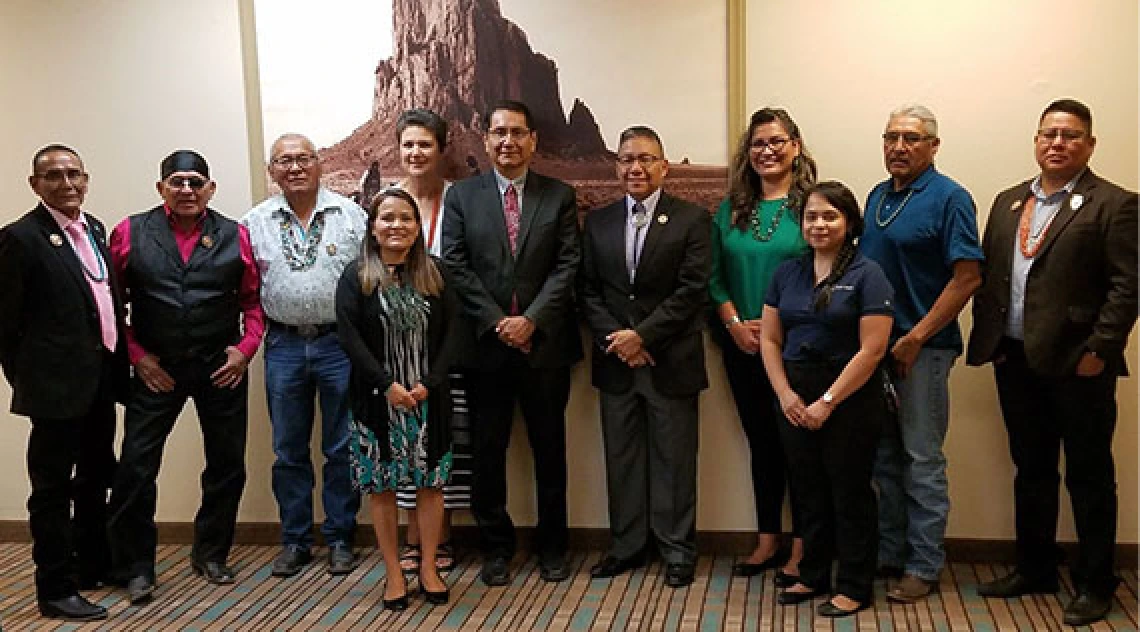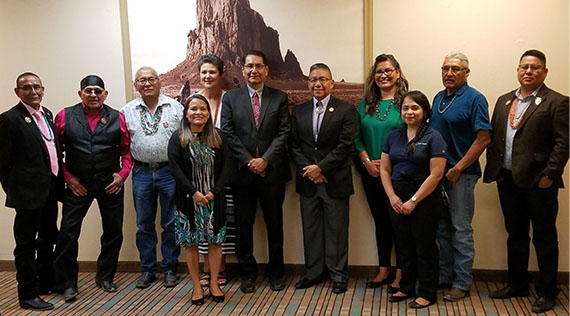Executive Session Discussed Social and Cultural Impacts of the Gold King Mine Spill

 On July 14, 2019, Dr. Karletta Chief, University of Arizona (UA) Superfund Research Program (SRP) Community Engagement Core Director, led the “Navajo Emergency Response Executive Session II: Social and Cultural Impacts of the Gold King Mine Spill,” assisted by doctoral candidate Yoshi Ornelas Van Horne and held in partnership with Northern Arizona University.
On July 14, 2019, Dr. Karletta Chief, University of Arizona (UA) Superfund Research Program (SRP) Community Engagement Core Director, led the “Navajo Emergency Response Executive Session II: Social and Cultural Impacts of the Gold King Mine Spill,” assisted by doctoral candidate Yoshi Ornelas Van Horne and held in partnership with Northern Arizona University.
This session connected diverse tribal members working in different areas of response to the Gold King Mine spill, with representation from university, state and federal agencies to provide perspective and information on how tribes are impacted by hardrock mining. The session aimed to share updated findings from community focus groups conducted within one year of the spill and outline, through discussion, critical steps for strengthening culturally-informed emergency response and communication practices on Navajo Nation for the future.
 From these discussions, leaders made recommendations to (1) create a data clearinghouse so environmental data from various sources can be housed in a central location and be more easily accessible by communities; (2) coordinate a community gathering event to come together to pray for the river and restore healing (particularly emotional wellness); (3) make the Navajo Nation All Hazard Mitigation Plan and Comprehensive Emergency Response Assessment available to all and provide training to chapters; (4) have communities be at the center of emergency response processes and not treated as if they don’t understand the data and science; (5) hold federal partners accountable for response and assistance; (6) be able to assess economic impacts of disasters on Navajo farmers and ranchers to better quantify loss from an emergency or disaster; (7) plan and commence remediation of the land near the river (e.g. plant trees, create wildlife preserves and sanctuaries) and to re-evaluate Navajo land policies to encourage a revival of farming and redistribute land to people that demonstrate a desire to farm; and (8) ensure that emergency response communication be in the Navajo language.
From these discussions, leaders made recommendations to (1) create a data clearinghouse so environmental data from various sources can be housed in a central location and be more easily accessible by communities; (2) coordinate a community gathering event to come together to pray for the river and restore healing (particularly emotional wellness); (3) make the Navajo Nation All Hazard Mitigation Plan and Comprehensive Emergency Response Assessment available to all and provide training to chapters; (4) have communities be at the center of emergency response processes and not treated as if they don’t understand the data and science; (5) hold federal partners accountable for response and assistance; (6) be able to assess economic impacts of disasters on Navajo farmers and ranchers to better quantify loss from an emergency or disaster; (7) plan and commence remediation of the land near the river (e.g. plant trees, create wildlife preserves and sanctuaries) and to re-evaluate Navajo land policies to encourage a revival of farming and redistribute land to people that demonstrate a desire to farm; and (8) ensure that emergency response communication be in the Navajo language.
Chief said, “This event was one of a series of over 30 report backs that we conducted over the course of three years since the Spill. Reporting back to the Navajo Nation is critical. Transparency is a must. Working under the guidelines and protocols of the Navajo Nation is important to protecting and nurturing our partnership with the Navajo Nation.”

